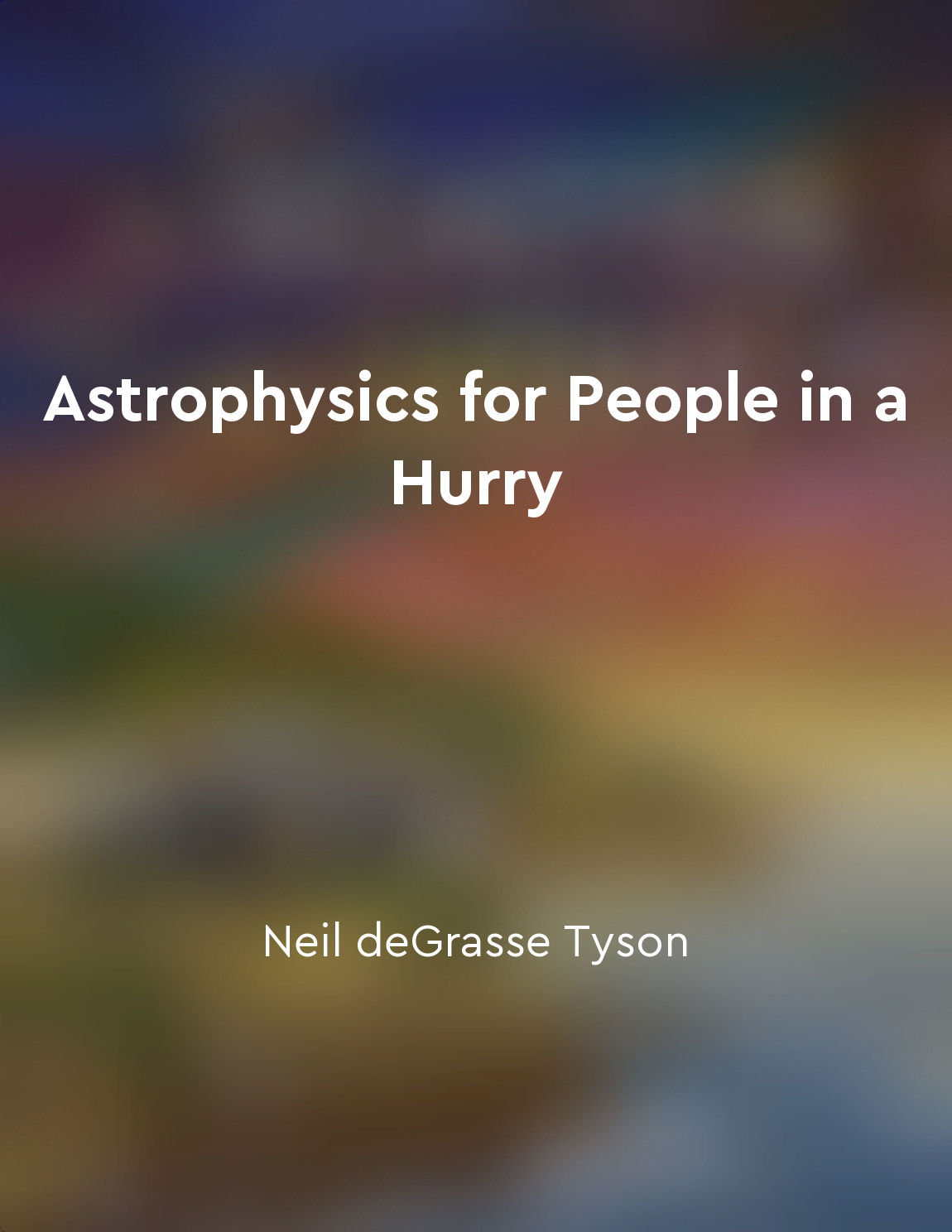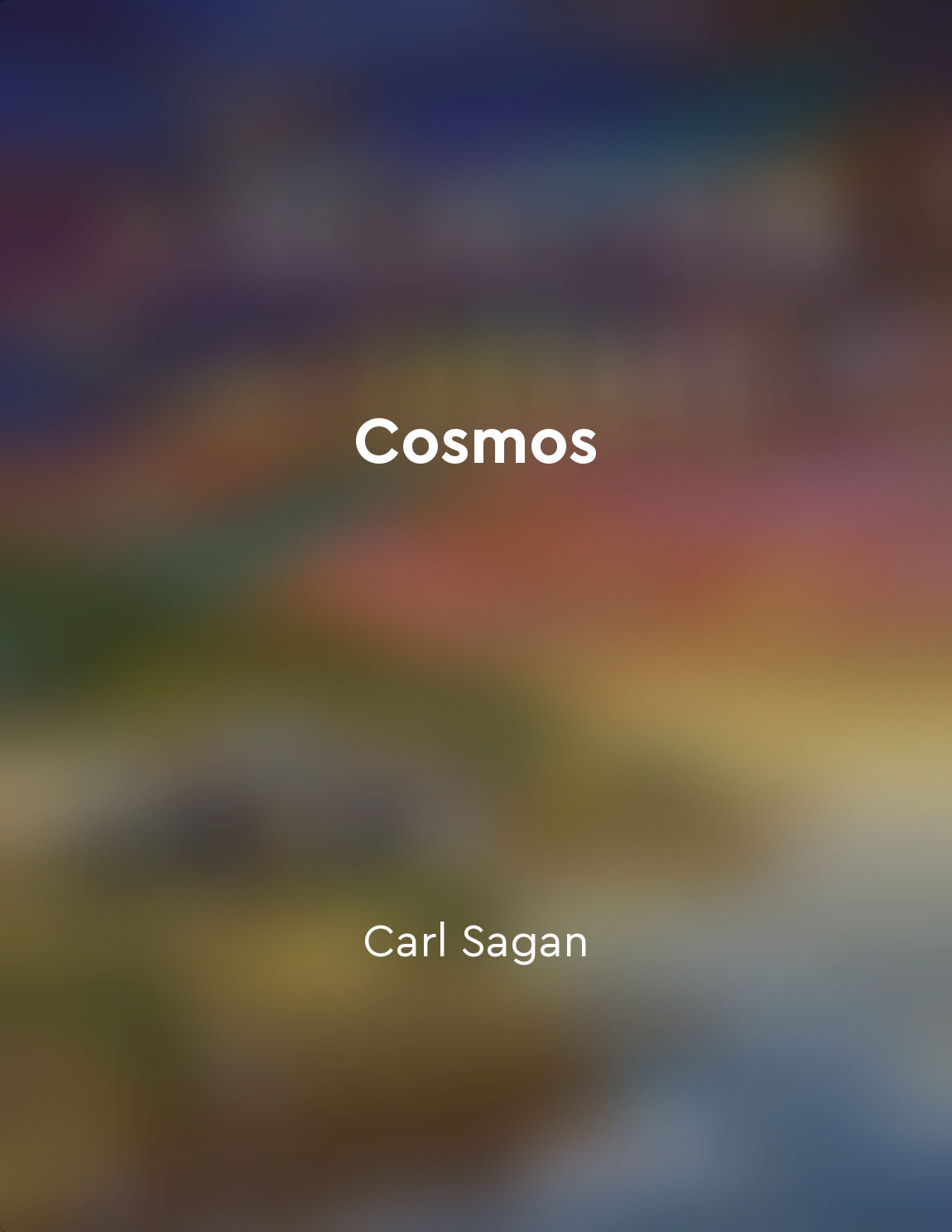The search for habitable exoplanets may hold the key to our longterm survival from "summary" of The Future of Humanity by Michio Kaku
Our search for habitable exoplanets is not just a scientific curiosity but a matter of long-term survival. As our technology advances, we are getting closer to finding planets outside our solar system that could potentially support life. These exoplanets could offer humanity a lifeline in case of a global catastrophe on Earth. The idea of colonizing other planets is not a new one. Science fiction has long envisioned humans living on distant worlds, escaping the confines of Earth. But now, this vision is becoming more of a reality than ever before. With the discovery of thousands of exoplanets in the habitable zone of their stars, the possibility of finding a new home for humanity is within reach. If we were to face a catastrophic event on Earth, such as a large asteroid impact or a supervolcanic eruption, having a backup plan on another habitable planet could be our only hope for survival. By expanding our presence beyond Earth, we could ensure the long-term survival of our species and safeguard our collective future. The search for habitable exoplanets is not just about finding another place to live; it is about ensuring the continuity of human civilization. By spreading out to other planets, we could create a network of interconnected colonies that could withstand any single point of failure. This resilience would be crucial for the survival of our species in the face of unforeseen challenges. In addition to providing a safety net for humanity, colonizing other planets could also open up new opportunities for exploration and discovery. By studying exoplanets up close, we could learn more about the origins of life in the universe and expand our understanding of the cosmos. This quest for knowledge could drive scientific progress and inspire future generations to reach for the stars. In the end, the search for habitable exoplanets is not just a scientific endeavor but a quest for survival and exploration. By looking beyond our own planet, we can secure a future for humanity that is as vast and boundless as the universe itself. The key to our long-term survival may very well lie in the stars, waiting for us to reach out and grasp it.Similar Posts
Humanity must embrace a Type I civilization mentality to achieve progress and sustainability
To achieve progress and sustainability, we must adopt the mindset of a Type I civilization. This means moving beyond our curren...
Understanding Earth's past can inform our future decisions
By studying Earth's past, we gain valuable insights into how our planet has changed over time, allowing us to better understand...
Gravitational microlensing is another detection method
Another way to detect exoplanets is through gravitational microlensing. In this method, the gravity of a foreground star acts a...
Scientists have discovered thousands of exoplanets
The hunt for exoplanets has been a fascinating journey for astronomers over the past few decades. The discovery of these alien ...

The cosmic microwave background radiation is a remnant of the Big Bang
The universe is bathed in a faint glow of radiation, known as the cosmic microwave background. This radiation comes from all di...

Our existence is just a fraction of cosmic time
In our brief time on this planet, we often forget the vastness of the cosmos. Our existence is but a mere blip in the grand sch...
Seek solutions through reason
The concept of seeking solutions through reason is one that has been at the core of human progress for centuries. By using our ...
The study of exoplanets continues to captivate scientists and space enthusiasts alike
The allure of exoplanets has not waned over the years. Scientists and space enthusiasts remain deeply engrossed in the study of...
